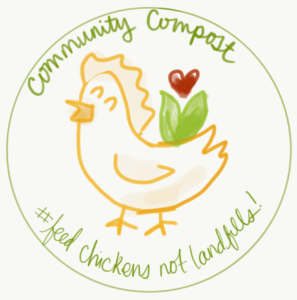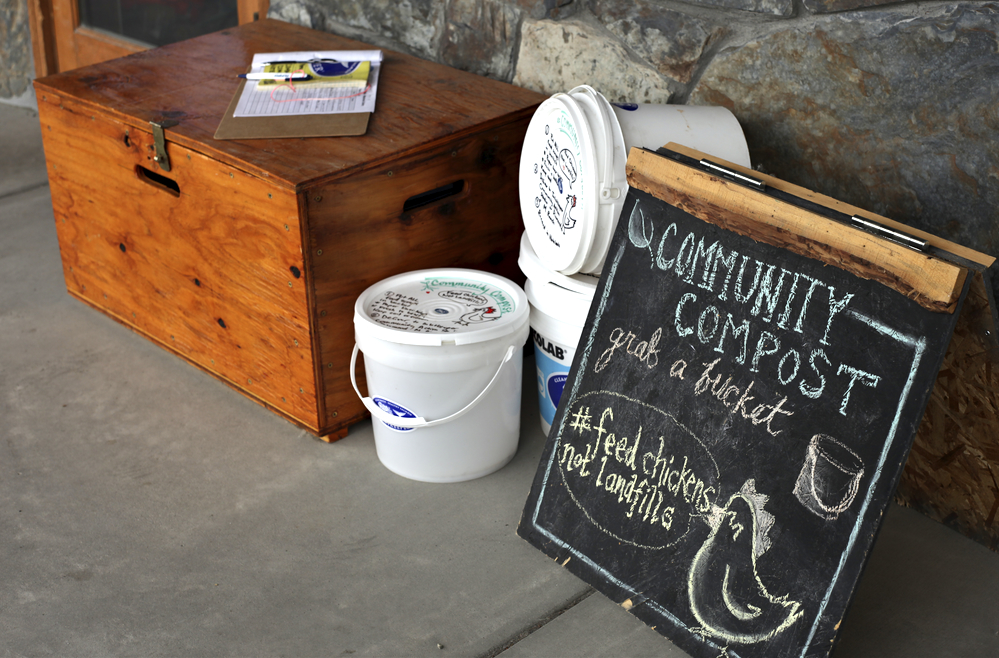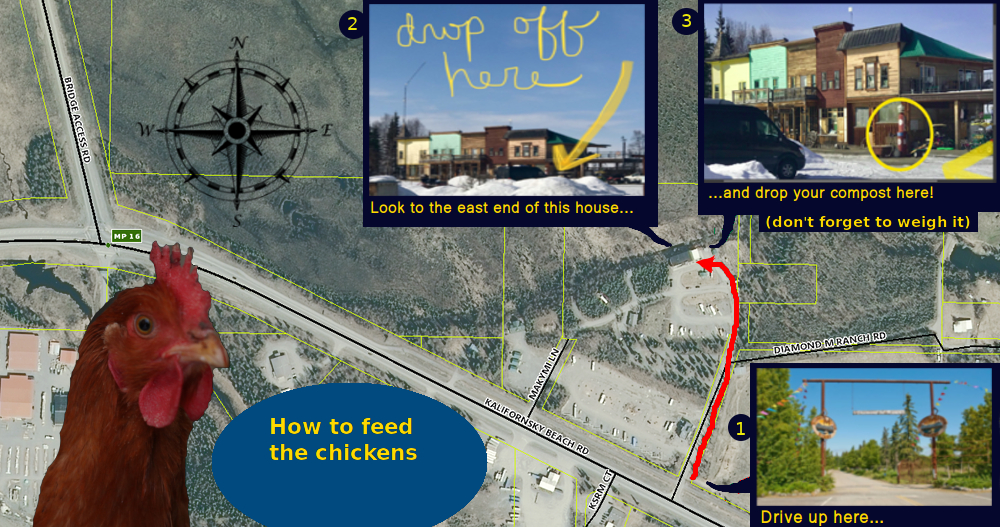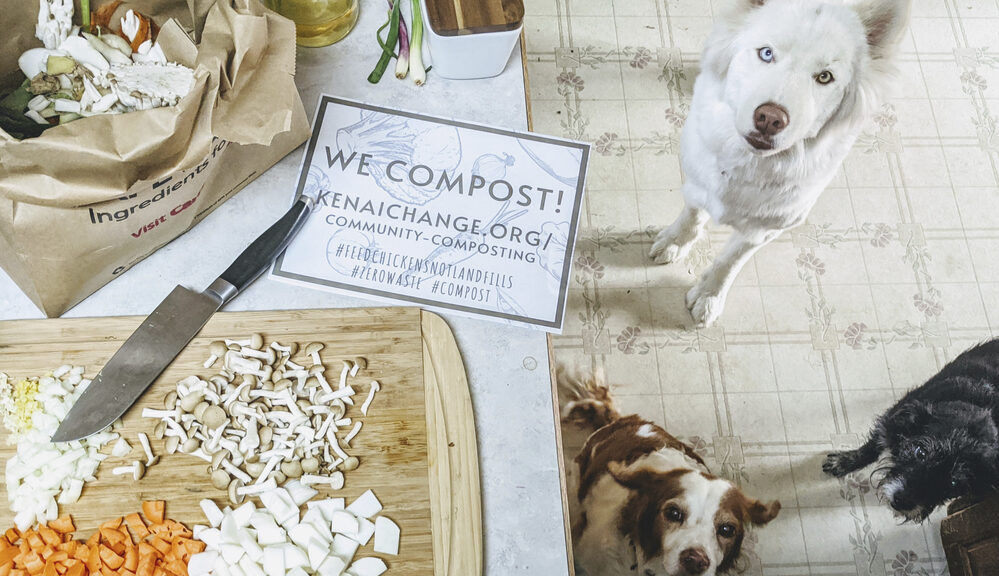Nearly half of all solid waste is compostable, but when buried in a landfill it decomposes into methane, a greenhouse gas with over 30 times the warming effect of carbon dioxide. Composting that waste instead not only avoids methane emission, but converts it into stable soil carbon and makes it nutrients available to plants as a valuable fertilizer.
“While many landfills have some form of methane management, it is far more effective to divert food waste for composting,” according to Drawdown: The Most Comprehensive Guide Ever Proposed to Reverse Global Warming (pg. 62).
Kenai Change and Cook Inletkeeper are aiming to divert 2,000 pounds of compostable waste from the Kenai Peninsula Borough’s landfill by Oct. 31st, 2020 — and by composting, to turn it into a resource for local farmers and food producers. You can work with us toward this goal in several ways. Through a partnership with Diamond M Ranch, we’re turning food scraps into chicken feed and fertilizer for a local peony growing business. Read on to learn more about contributing to that project. But you don’t have to give us your valuable food scraps to be part of the effort! At the bottom of this page you’ll find resources for home composting as well.
Either way, we want to measure how much food waste our community keeps out of the landfill. Scaling up local composting is our long-term goal, and to achieve it we need to show potential partners that the Kenai Peninsula is eager for a greater opportunity to manage food waste sustainably. To that end, you can count both your home composting or the waste you send to the community project toward our 2,000 pound goal by logging your food scraps through our tracking form, hosted by Cook Inletkeeper here:
https://inletkeeper.org/compost/

Feed chickens, not landfills

Don’t have the time or space for a compost pile at home? We’re working on a community solution. Stop by Cook Inletkeeper’s studio in Soldotna to pick up a two-gallon bucket with sealing lid to collect your food scraps. Blair Martin of Diamond M Ranch will be composting what we collect in these buckets in his winrow in a field on West Poppy Lane. Ultimately, the compost will be used for peony farming.
We are also composting indirectly via chicken. Some of the scraps we collect will go to feed the residents of Blair’s hen house (and when the winrow is frozen in the winter, all of it will), but it will all become compost eventually. When Blair cleans the hen-house, the manure and leftover scraps will join the rest to decompose in the Poppy Lane winrow.
Once you’ve filled a bucket with any organic food waste your household produces, drop it at one of these two locations:
1. Cook Inletkeeper Community Action Studio
35911 Kenai Spur Hwy #13, Soldotna, AK 99669 (the Mattress Ranch building)
Drop your compost off anytime at the Inletkeeper Studio. There will be a box (pictured below) outside the front door for compost and paper-bag liners (no plastic bags please) and a logbook to record your drop-off. Tracking how many people are participating and how much waste they’re keeping from the landfill helps us make a strong case for more community composting opportunities in the central peninsula, so don’t forget to record your contribution.

2. Diamond M Ranch
48500 Diamond M Ranch Road (near intersection of K-Beach and Bridge Access Rd)
Leave your bucket on the east side of Diamond M’s main office building, as shown in the map below. Please weigh your bucket on the scale there, and don’t forget to record the weight in the log book next to it, so we know how much compost we’ve diverted from the landfill.

Home composting
Heidi Chay, director of the Kenai Soil and Water Conservation district, has compiled this playlist of videos about the best ways to compost at home in a cold climate like Alaska’s.
Resources for large-scale composting
Eventually we want to scale up our composting effort to a community-wide service for the Kenai Peninsula. Here are some things to read on past attempts to do this in our borough and in other Alaskan communities:
- In August 2013, the Kenai Peninsula Borough commissioned a feasibility study of municipal composting. Here it is:
- The Institute for Local Self Reliance has a thorough guide to community composting: https://ilsr.org/composting-bmp-guide/
- “Juneau Composts!” is built on a model similar to one we may use.
- The Matanuska-Susitna Borough offers free classes in home composting. This could be something for us to consider.

